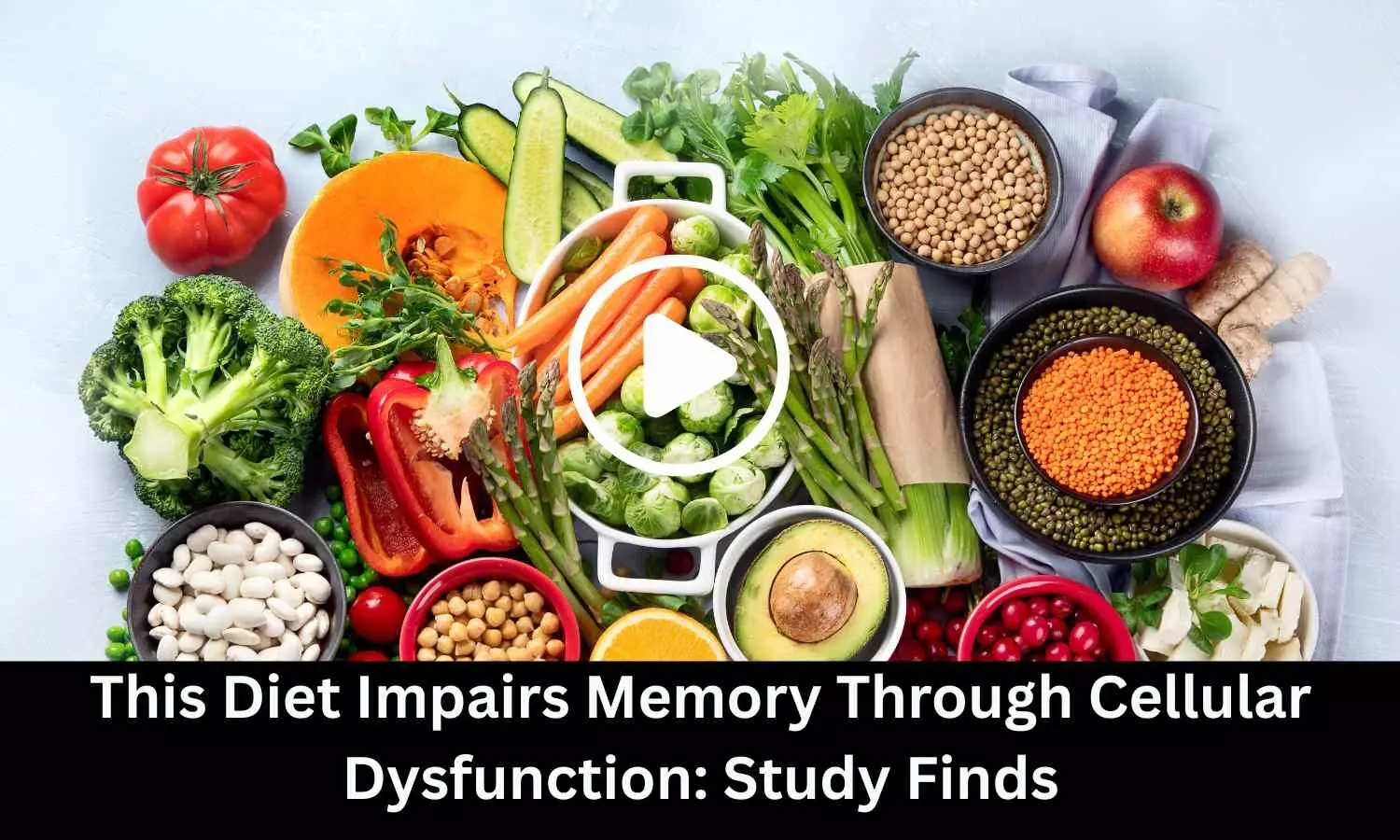This Diet Impairs Memory Through Cellular Dysfunction: Study Finds
- byDoctor News Daily Team
- 30 September, 2025
- 0 Comments
- 0 Mins

A new study published inPLOS Geneticsby researchers at Chiba University, Japan, has revealed thathigh-fat dietsmay impair memory formation by disrupting autophagy, a key cellular process responsible for recycling damaged components. With modern lifestyles increasingly dominated by processed and fatty foods, high-fat diets (HFDs) have been linked to conditions likeobesity,diabetesandmetabolic disorders. More recently, researchers have also begun investigating the impact of such diets on brain health. The research team used Drosophila melanogaster, the common fruit fly, as their model. Fruit flies share many metabolic and neural pathways with humans, making them ideal for studying complex biological processes like memory formation. The researchers fed the flies either a normal diet or and high-fat diets for seven days, then assessed changes in their metabolism and memory. Flies on the high-fat diet showed increased levels of triacylglycerol (TAG), glucose, and intestinal lipid accumulation—indicating altered lipid and glucose metabolism. Most strikingly, the high-fat diets -fed flies demonstrated significant impairments in intermediate-term memory (ITM) and long-term memory (LTM), though short-term memory remained intact. This cognitive decline was linked to disruptions in autophagy and lysosomal function. “Our findings suggest that diet-induced cognitive decline is not irreversible and may be improved by lifestyle interventions that promote autophagy, such as exercise or intermittent fasting,” said Associate Professor Ayako Tonoki from the Graduate School of Medical and Pharmaceutical Sciences. Understanding how diet impacts autophagy and memory could pave the way for early preventive strategies against neurodegenerative diseases, underscoring the importance of healthy eating for lifelong brain health. Reference:Yue T, Jiang M, Onuki K, Itoh M, Tonoki A (2025) High-fat diet impairs intermediate-term memory by autophagic-lysosomal dysfunction in Drosophila. PLoS Genet 21(8): e1011818. https://doi.org/10.1371/journal.pgen.1011818
Disclaimer: This website is designed for healthcare professionals and serves solely for informational purposes.
The content provided should not be interpreted as medical advice, diagnosis, treatment recommendations, prescriptions, or endorsements of specific medical practices. It is not a replacement for professional medical consultation or the expertise of a licensed healthcare provider.
Given the ever-evolving nature of medical science, we strive to keep our information accurate and up to date. However, we do not guarantee the completeness or accuracy of the content.
If you come across any inconsistencies, please reach out to us at
admin@doctornewsdaily.com.
We do not support or endorse medical opinions, treatments, or recommendations that contradict the advice of qualified healthcare professionals.
By using this website, you agree to our
Terms of Use,
Privacy Policy, and
Advertisement Policy.
For further details, please review our
Full Disclaimer.
Recent News
Merck Keytruda wins European Commission nod for lo...
- 30 October, 2025
UP NEET 2025 round 3 allotment results postponed
- 30 October, 2025
Achin Gupta to succeed Umang Vohra as Cipla MD, GC...
- 30 October, 2025
Mumbai shocker: KEM Hospital doctor stabbed by col...
- 30 October, 2025
Daily Newsletter
Get all the top stories from Blogs to keep track.


0 Comments
Post a comment
No comments yet. Be the first to comment!